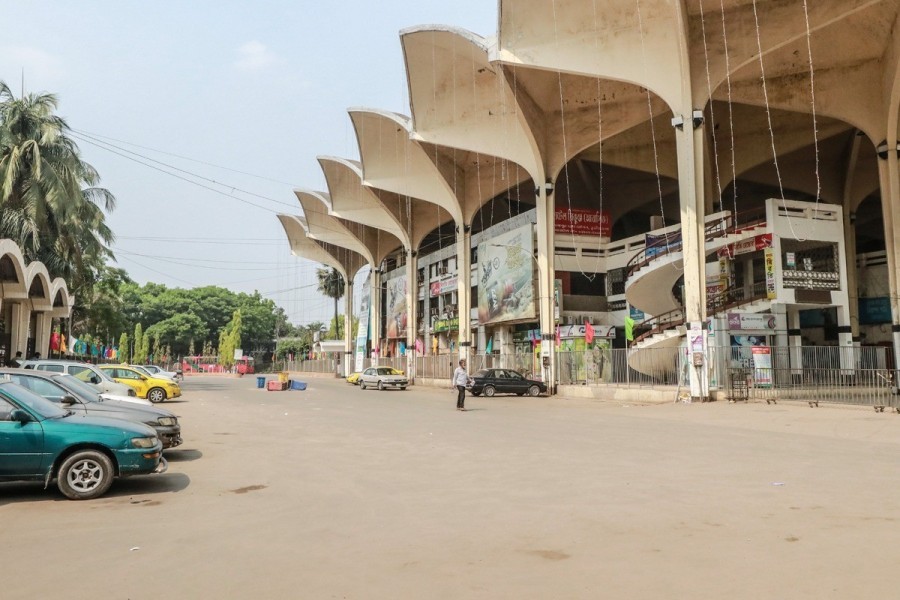
Published :
Updated :

We all are well aware that the whole world, including our country, is now passing through a very crucial time due to the Covid-19 pandemic. The government has announced general holidays from March 26 to April 14. Governments of many countries of the world have declared lockdown. People of each and every country are instructed to stay at home, not to go out. This instruction has been given in order to save the people, to save the country. Because of lockdown, global economy is in the way of recession. The economy of Bangladesh is undoubtedly going to face a serious shock. Export and foreign remittance would decrease, production is under serious threat due to hamper of import and thus, local demand will reduce.
As a precaution of such economic slowdown, Prime Minister Hasina has announced stimulus package of TK 727.50 billion (72,750 crore) which is equivalent to 2.52 per cent of gross domestic product (GDP) of the country. This stimulus package includes Tk 50 billion (5,000 crore) for paying salaries and allowances of export-oriented industry workers and employees, Tk 300 billion (30,000 crore) for providing working capital loan to the affected industries and service sectors with 9.0 per cent interest, out of which half, i.e. 4.5 per cent, will be borne by the facility enjoying entity and the other 4.5 will be paid by government as subsidy, and Tk 200 billion (20,000 crore) for providing working capital loan facility to small and medium enterprises (SME) including cottage industries at 9.0 per cent interest, out of such interest 4.0 per cent will be borne by the entity and 5.0 per cent will be subsidised by the government. Export Development Fund (EDF) will be enhanced by an additional amount of Tk 127.50 billion (12,750 crore) with interest rate of 2.0 per cent and a new credit facility of Tk 500 billion (5,000 crore) as 'Pre-shipment Credit Refinance Scheme' will be introduced by the central bank with 7.0 per cent interest.
The declared stimulus package is only in the area of monetary policy i.e. the government has apparently taken expansionary monetary policy. It may be questioned whether this announced stimulus package is sufficient compared to the probable economic loss. But undoubtedly it may be said that the package announced by the government is beneficial to protect the economy.
Which types of industries will be eligible to enter the stimulus package? What will be the terms and conditions to get the benefit of the package? Everything will be published in the policy to be announced later on. But the main question is: how the supply of the fund will be managed. In this connection it is mentionable that in addition to the stimulus package, the government has announced that social safety net will also be increased.
Due to the economic slowdown by the Covid-19 pandemic, tax revenue of the government will reduce drastically. The government has already borrowed a substantial amount from the banks to meet up the expenditure. One of the ways is to increase the credit by reducing the Cash Revenue Ratio (CRR), but that can support a maximum of TK 60 billion (6,000 crore). A question remains how the private banks will respond to the government package. The only resource is the state-owned commercial banks (SOCBs). But due to low interest rate, collection of sufficient amount of deposit is a challenge for the SOCBs. How much are the SOCBs collectively capable to support the government's package?
The other way to increase the supply of money is to increase the velocity of money. To take the benefit of that monetary policy i.e. to increase the velocity of money, government expenditure will have to be completed as fast as possible and the technological transactions need to be increased.
If all the normal ways and means to increase the supply of money fail, the last weapon that will remain in the hand of the government is to go for printing the currency. This may create a huge inflationary pressure in the economy. So, the government will have to be careful while implementing the stimulus package so that the mitigation of one crisis may not invite another problem.
It is worth noting that nothing has been mentioned in the stimulus package about the fiscal policy. There are lots of areas of income tax, value added tax act where special attention may be given like increasing the minimum taxable amount, deduction of tax at source etc. The government will hopefully take care of these issues. Another issue is the opportunity for making payment of utility bills like electricity, gas, water etc. has been extended up to three months without penalty. However, in tax and VAT law there are lots of stipulated times for submission of documents, filing of returns, filing of appeal etc., but due to long general holidays timely submission of those are going to be distorted resulting imposition of penalties. Hopefully, the government will take necessary steps to address those issues.
The stimulus package announced by the government is praiseworthy but the success of the initiative depends on proper management of the fund. Mainly, terms and conditions should be stipulated in such a manner so that genuine businessmen can get the benefit. It should also be ensured that the fund is disbursed based on need without any political consideration or any other unwanted influence.
Md. Shahadat Hossain, FCA is Council Member & Ex-Vice President of the Institute of Chartered Accountants of Bangladesh


 For all latest news, follow The Financial Express Google News channel.
For all latest news, follow The Financial Express Google News channel.